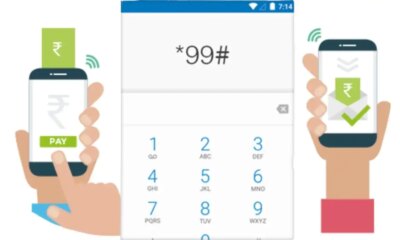How To
Koo App: From How to Download Koo to App Features, Here’s Everything You Should Know About the Indian Alternative to Twitter

[ad_1]
Koo, an Indian alternative to Twitter, has become the talk of the town as it promotes Aatmanirbhar Bharat by offering a a Twitter-like experience, but in Indian languages. It is available as an app on both iOS and Android, and also has a webpage. Koo is the winner of the government’s Aatmanirbhar Bharat app challenge from 2020. Although it largely faded from the spotlight after that, the app has again gained popularity after Twitter refused to take down some content that the government had ordered it to remove. This takedown is an ongoing matter, but in the meanwhile, government bodies like MeitY, and senior politicians like Union Minister Piyush Goyal, have been tweeting about Koo and their accounts on that platform.
What is Koo?
Koo is a microblogging service just like Twitter where users can express their opinions. It has been developed by Aprameya Radhakrishna, who is the co-founder and CEO. Koo was launched in March last year and it won The Digital India AatmaNirbhar Bharat Innovate Challenge that finds the best Indian apps that have the potential to become world class apps. The idea behind the app was to allow Indian users to share their opinions in local languages, according to the ‘about’ section on the Koo website.
“Just 10 percent of India speaks English. Almost 1 billion people in India don’t know English. Instead they speak one of India’s 100s of languages. They are now getting access to smartphones and would love an internet in their language.” It goes on to state, “Koo is an attempt to make the voice of these Indians heard. They can now participate on the internet in their mother tongue by listening to the views of some of the sharpest Indian minds and also speak their mind by sharing their thoughts.”
Koo app is available for free on Android and iOS, and there is a website as well where you can check out the feed.
Why is Koo in the news?
Koo got back into the spotlight after Union Minister Piyush Goyal tweeted about joining the homegrown microblogging platform. This comes during the ongoing disagreement between the Indian government and Twitter. The government reportedly told Twitter to remove over 1,000 accounts that it said were spreading misinformation and provocative content about the protests. Twitter did not agree to this, and said it didn’t take any action on accounts related to media entities, journalists, activists, and politicians.
Not just Goyal, there are other senior politicians who are using Koo, including Minister of Electronics and IT Ravi Shankar Prasad and Karnataka Chief Minister BS Yediyurappa. Government ministries and departments such as the Ministry of Electronics and IT (MeitY), Central Board of Indirect Taxes (CBIC), National Institute of Electronics and Information Technology (NIELIT), India Post, MyGovIndia, Digital India, and National Informatics Centre (NIC), among others, are also on the platform.
How do I download Koo?
Koo is a free app available on both Android and iOS. Alternatively, users can head to Google Play and search for “Koo”. The app is named “Koo: Connect with Indians in Indian Languages” on Google Play. It is named just “Koo” on the App Store with Bombinate Technologies Private Limited as the provider.
You can head to the website and click on the Google Play or App Store download options to be redirected to a download link.
What are Koo’s features?
Koo has features that are quite similar to Twitter. It allows users to follow individuals and browse through a feed. Users can write messages in text or share them in audio or video formats. It has Kannada, Tamil, Telugu, Tamil, and English language options, with other coming soon. It also allows people to express their opinions in their local languages.
Messages can be written up 400 characters and are called “Koo”. There are language communities which essentially show all content in a particular language.
Is LG Wing’s unique design alone enough to help it succeed in India? We discussed this on Orbital, our weekly technology podcast, which you can subscribe to via Apple Podcasts, Google Podcasts, or RSS, download the episode, or just hit the play button below.
[ad_2]
Source link











